Across the United States, numerous dog breeds are facing bans and restrictions due to their perceived risks. While many of these breeds are beloved pets, their physical strength, historical uses, or unfair stereotypes have made them targets of breed-specific legislation (BSL).
Understanding why certain dogs are being banned in the USA sheds light on how misjudgments and fears can overshadow the loyal and loving nature of these animals. Let’s explore 15 banned dog breeds in USA that have been banned or restricted in various parts of the country.
15 Banned Dog Breeds in USA
1. Rottweilers Are Loved by Families but Feared by Lawmakers
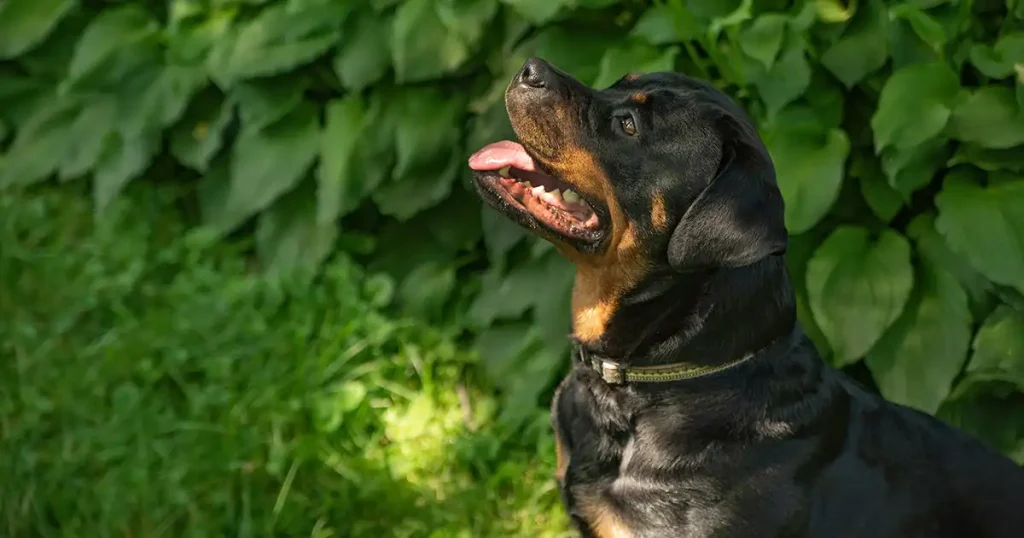
Rottweilers are among the most misunderstood breeds in America. Known for their loyalty, intelligence, and protective nature, these dogs often form unbreakable bonds with their families. Despite their gentleness with children, they’re frequently banned in cities like Detroit, Michigan. Why? Their muscular build and strong guarding instincts make them seem intimidating.
However, it’s essential to recognize that a Rottweiler’s behavior is largely determined by its upbringing and training. When raised in a loving environment, they are affectionate and obedient. Sadly, their size and strength often result in harsh regulations. These loyal companions deserve a chance to shine beyond the shadow of legislation.
2. Pit Bulls Face Unfair Judgments in Many States

Few breeds face as much controversy as Pit Bulls. These muscular dogs, often described as aggressive, are banned in cities like Denver, Colorado. However, Pit Bulls’ reputation stems from their misuse by irresponsible owners rather than their natural temperament.
In reality, these dogs are incredibly loving and loyal. They excel in family settings and are particularly gentle with children. Despite this, the stigma surrounding Pit Bulls has made them one of the most banned breeds in the USA. The real question is whether it’s fair to penalize a breed for the actions of negligent owners.
3. Dobermans Are Seen as Dangerously Loyal

Dobermans are sleek, intelligent, and fiercely loyal to their families. Their protective instincts, however, have led to restrictions in places like Honolulu, Hawaii. These dogs are often associated with guarding duties, which contributes to their fearsome image.
Yet, Dobermans thrive in loving homes and can be incredibly affectionate. Proper training and socialization transform them into reliable companions. Unfortunately, their image as aggressive guard dogs has led to widespread misunderstanding, resulting in bans and restrictions.
4. German Shepherds Are Heroes Who Can’t Catch a Break
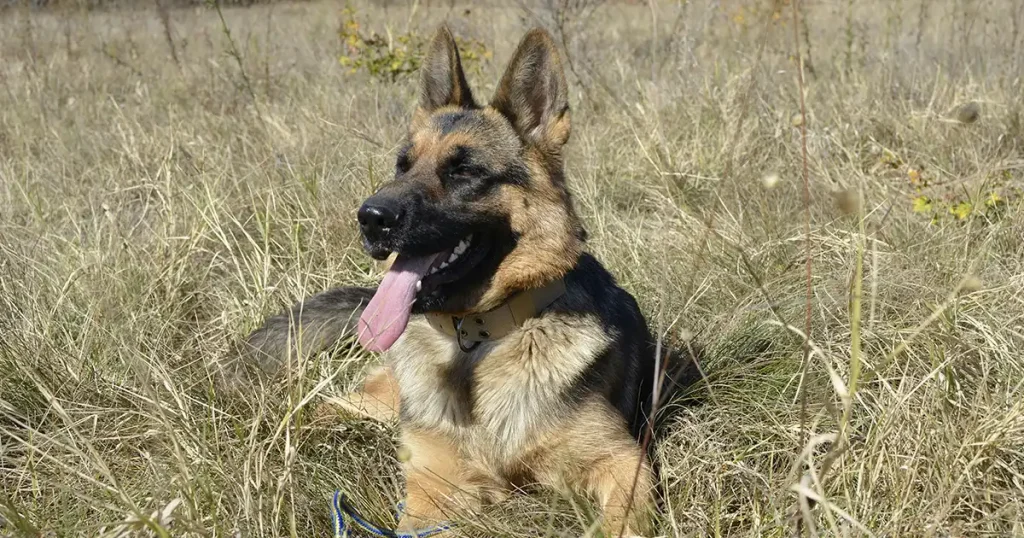
German Shepherds, often regarded as heroes for their roles in police and military work, face bans in areas like Dalton, Georgia. Their intelligence and strength, which make them excellent working dogs, are also what cause lawmakers to label them as “too aggressive.”
These loyal dogs are much more than their stereotype. They are amazing family pets, guide dogs, and protectors. It’s disheartening to see such versatile and loving animals be restricted due to exaggerated fears.
5. Wolf-Dog Hybrids Face an Identity Crisis

Wolf-dog hybrids straddle the line between wild and domestic, a fact that has made them highly controversial. States like Alaska have banned these hybrids due to concerns about their unpredictable behavior.
While some hybrids retain wild tendencies, many are more dog than wolf and can thrive in the right environment. The key to managing these animals lies in understanding their unique needs, not in outright bans. Unfortunately, fear of their wild heritage often outweighs the facts.
6. Alaskan Malamutes Are Guilty by Association

Alaskan Malamutes, with their wolf-like appearance, are often misunderstood. Despite being affectionate and family-oriented, they’re banned in places like Fairfield, Iowa. Their size and energy levels can intimidate people unfamiliar with the breed.
These gentle giants are excellent companions for active families. However, their resemblance to wolves often works against them, leading to unnecessary restrictions. It’s another case of judging a book by its cover.
7. Chow Chows Are Fluffy but Feared

Chow Chows, with their lion-like manes and aloof demeanor, are often restricted in cities like Madison, Wisconsin. Their protective nature and tendency to bond closely with one person can lead to misunderstandings about their behavior.
These dogs are not inherently aggressive; they simply require proper training and socialization. For those willing to invest time in them, Chow Chows make incredibly loyal and loving companions. Unfortunately, their reputation precedes them, leading to unfair bans.
8. Cane Corsos Are Powerful but Misjudged
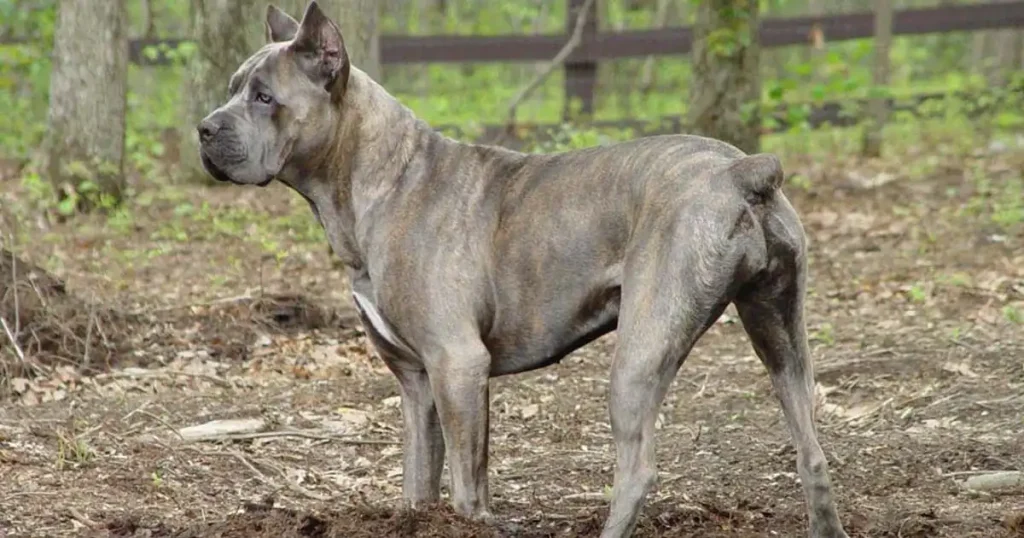
Cane Corsos, descendants of Roman war dogs, are often viewed as intimidating due to their size and strength. States like Arkansas have placed restrictions on owning these impressive dogs, fearing potential aggression.
In reality, Cane Corsos are protective and deeply loyal to their families. With proper training and care, they can be gentle giants. The stigma surrounding their appearance and history continues to overshadow their true nature.
9. Dogo Argentinos Are Victims of Their Own Strength

The Dogo Argentino, a breed originally developed for hunting, has been banned in cities like New York. Their athletic build and determination make them targets for breed-specific legislation.
However, Dogos are affectionate and devoted to their families. They require experienced owners who can provide them with structure and training. Sadly, their muscular appearance often leads to misconceptions about their temperament.
10. Akitas Are Regal but Restricted

Akitas, known for their dignified and independent nature, are restricted in states like Kentucky. Their protective instincts and strong will can be intimidating to those unfamiliar with the breed.
With proper socialization, Akitas are loving and gentle pets. They thrive in homes where they can form close bonds with their families. Unfortunately, their reputation as aggressive dogs leads to widespread bans and restrictions.
11. Presa Canarios Are Powerful but Often Misunderstood
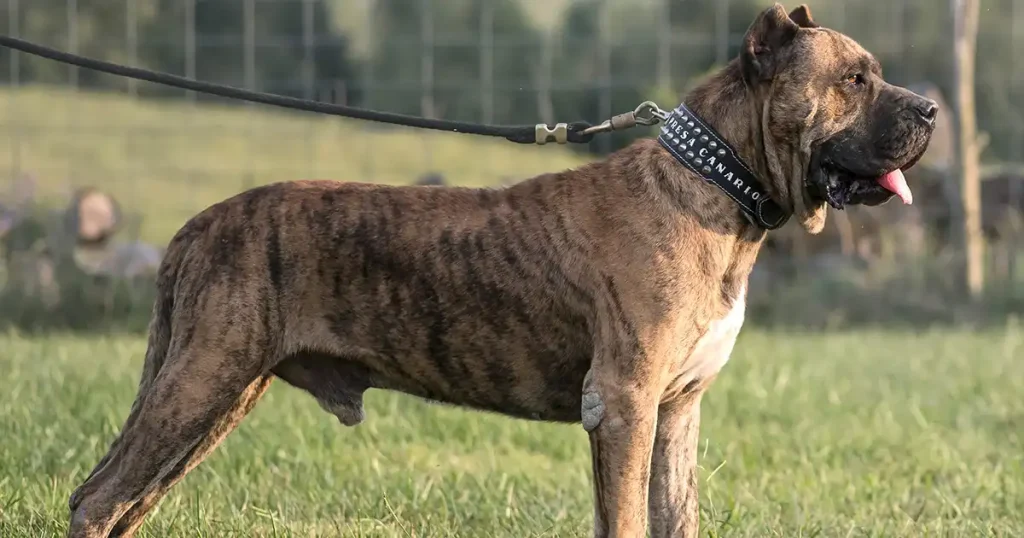
Presa Canarios, bred for guarding livestock, are often labeled as dangerous. Their size and strength have led to restrictions in states like California, where they’re considered a liability.
These dogs are incredibly loyal and thrive in homes with experienced owners. Proper training and socialization can bring out their affectionate side. Sadly, misconceptions about their nature continue to fuel their inclusion on banned lists.
12. Great Danes Are Gentle Giants with a Bad Rap
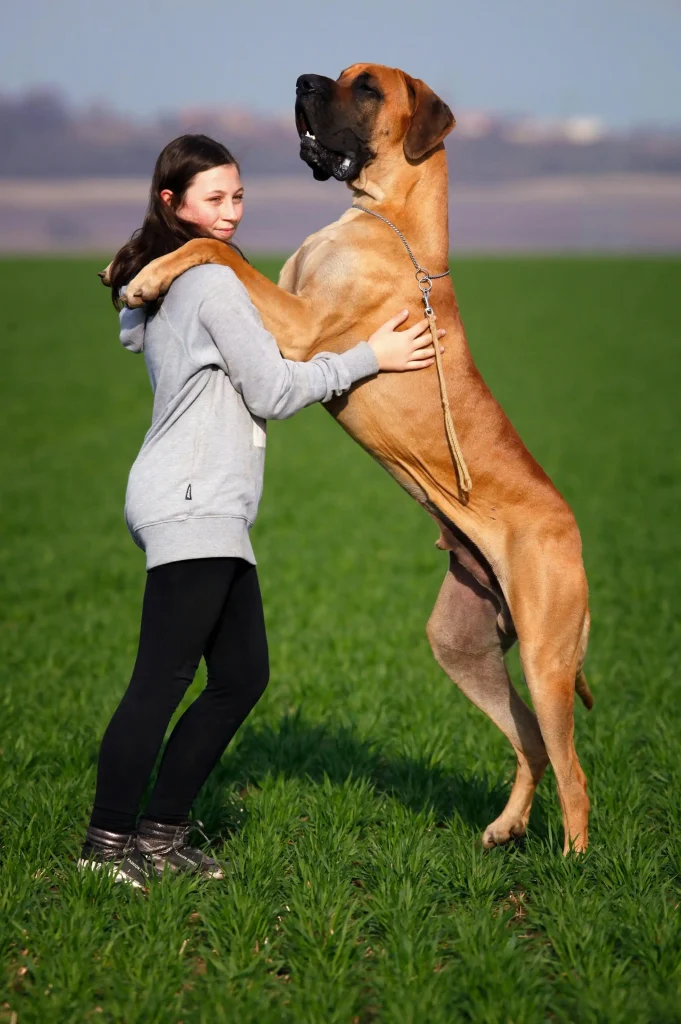
Despite their towering size, Great Danes are known for their gentle and affectionate nature. However, their size alone has led to restrictions in places like Milwaukee, Wisconsin.
These dogs are famously good with children and are often referred to as “gentle giants.” It’s unfortunate that their size, rather than their temperament, has made them a target for bans.
13. Staffordshire Bull Terriers Are Too Sweet for Their Own Good
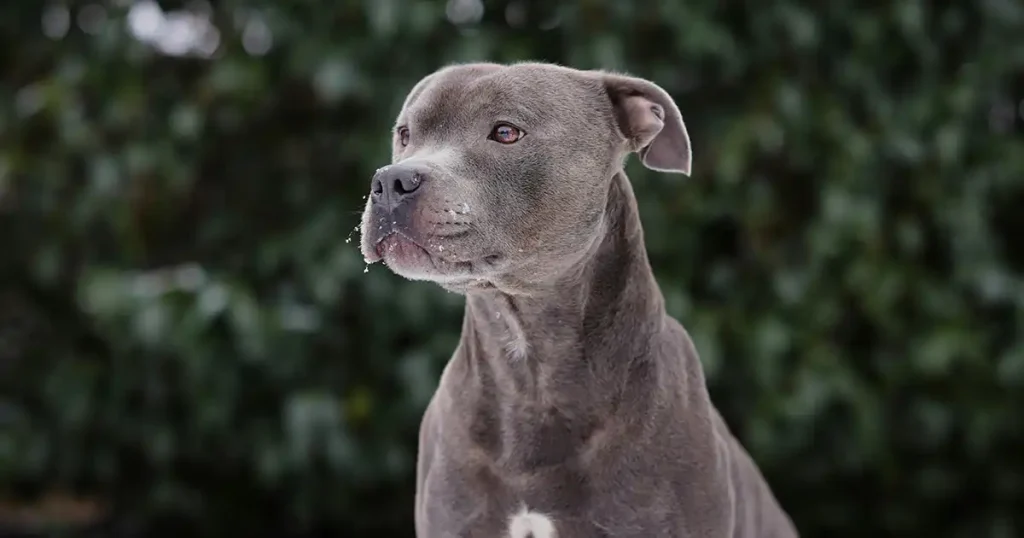
Staffordshire Bull Terriers, or Staffies, are affectionate and known for their love of children. Unfortunately, their resemblance to Pit Bulls has led to bans in places like Kansas City, Missouri.
These dogs are playful, gentle, and excellent family pets. The unfair association with Pit Bulls has caused them to face unwarranted restrictions, highlighting the flaws in breed-specific legislation.
14. Fila Brasileiros Are Rare but Restricted
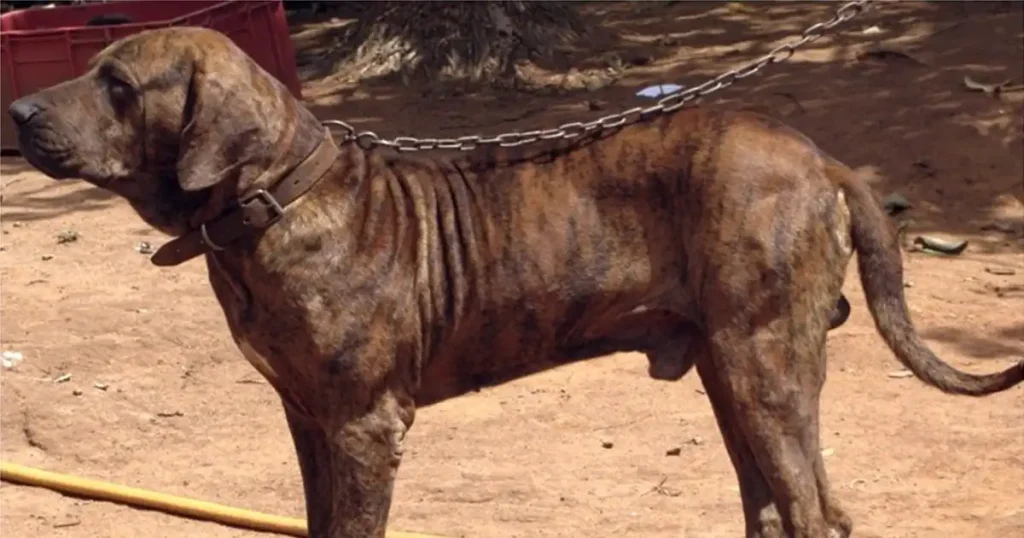
Fila Brasileiros, also known as Brazilian Mastiffs, are bred for guarding and protecting. Their strong instincts have led to bans in states like Colorado, where they’re deemed too aggressive.
In reality, these dogs are deeply loyal and form strong bonds with their families. They require experienced owners who understand their needs. Unfortunately, their protective nature has made them a target for restrictions.
15. Bullmastiffs Are Guardians with a Gentle Side

Bullmastiffs, known for their guarding abilities, have faced restrictions in states like Nevada. Their size and strength often lead to misconceptions about their temperament.
These dogs are calm, affectionate, and excellent with children. Their imposing appearance can be intimidating, but those who know Bullmastiffs understand they’re more about cuddles than conflict. Sadly, appearances often dictate their fate.
You may also like:
Conclusion
It’s evident that many of these breeds are banned or restricted not because of their behavior but due to misunderstandings and stereotypes. The reality is that any dog’s temperament depends on its upbringing, training, and environment.
The fact that dogs are being banned in the USA based on their breed highlights the need for more education and responsible ownership. Instead of focusing on breed-specific legislation, efforts should aim at promoting awareness and proper training. After all, every dog deserves a chance to prove its worth beyond its appearance.



